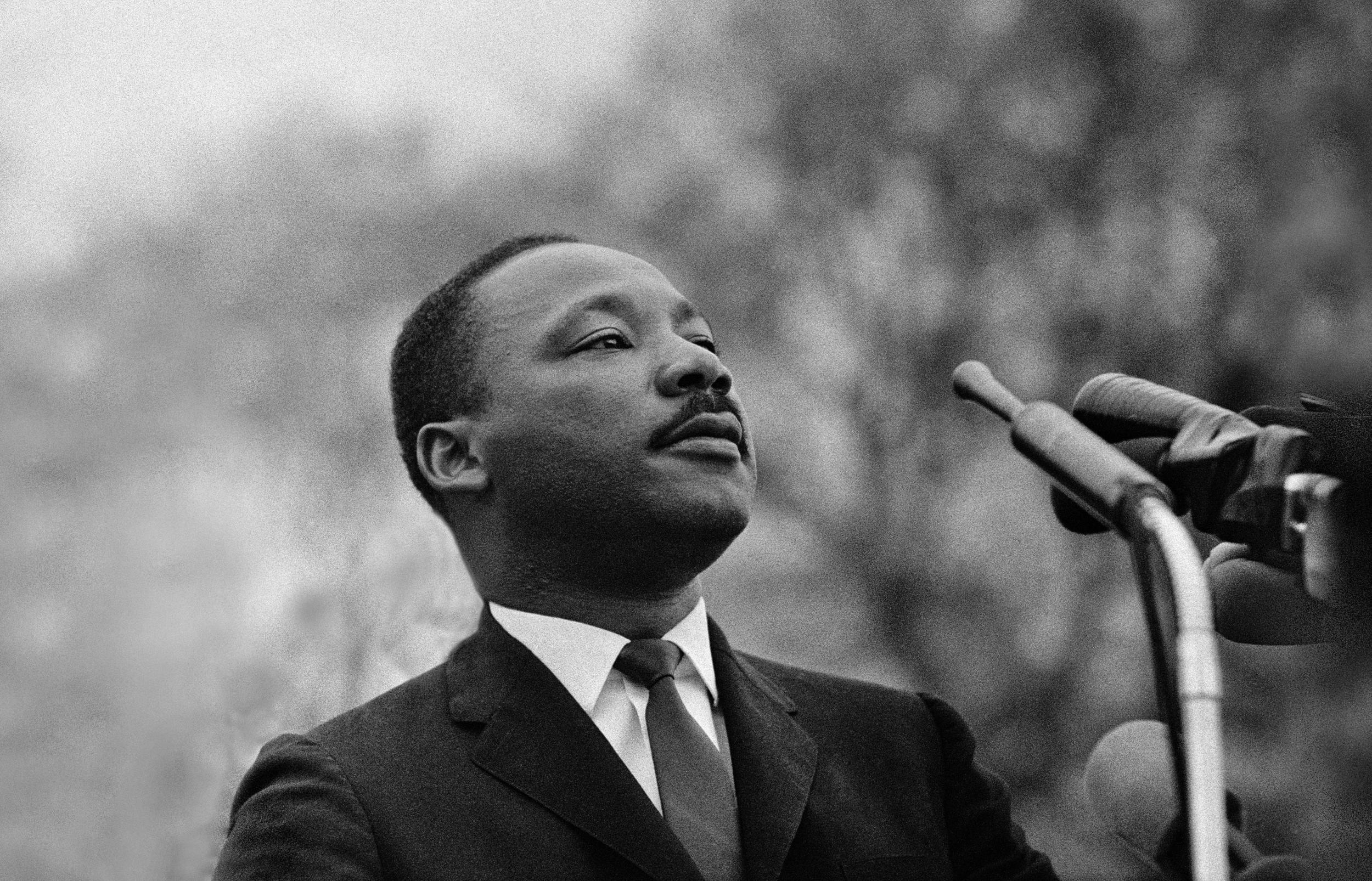Just 1 in 10 black Americans believe civil rights movement's goals have been achieved in the 50 years since Martin Luther King Jr was killed, says new poll
Americans still divided by race over movement King helped lead

Your support helps us to tell the story
From reproductive rights to climate change to Big Tech, The Independent is on the ground when the story is developing. Whether it's investigating the financials of Elon Musk's pro-Trump PAC or producing our latest documentary, 'The A Word', which shines a light on the American women fighting for reproductive rights, we know how important it is to parse out the facts from the messaging.
At such a critical moment in US history, we need reporters on the ground. Your donation allows us to keep sending journalists to speak to both sides of the story.
The Independent is trusted by Americans across the entire political spectrum. And unlike many other quality news outlets, we choose not to lock Americans out of our reporting and analysis with paywalls. We believe quality journalism should be available to everyone, paid for by those who can afford it.
Your support makes all the difference.Just 10 per cent of black Americans think the US has achieved all or most of the civil rights movement’s goals, 50 years after the death of leader Martin Luther King Jr.
A new poll, conducted six weeks before the anniversary of King's assassination, found Americans are still divided by race when it comes to the movement the Baptist minister helped lead.
Thirty-five per cent of whites surveyed by the Associated Press-NORC Center for Public Affairs said that all or most of the civil rights movement’s goals have been achieved. Just 8 per cent of blacks agreed.
In fact, sixty-five per cent of blacks said race relations had deteriorated in the past year alone, compared to 45 per cent of whites.
More than half of all whites said a lot of progress has been made on reducing segregation in public life, compared to just under a quarter of blacks. And more than 40 per cent of whites thought there has been a lot of progress on equal representation in the media and in politics, compared to less than 15 per cent of blacks.
"I think [the civil rights movement] absolutely achieved its goals,” Grant Jay Walters of New York told the Associated Press. Mr Walters is white.
He added: “I do not think the civil rights movement can go in and change the hearts of men. There's still a lot of racism in the communities and I'm not sure how you can ever make that go away."
Stephanie Sutton, a black woman from Maryland, disagreed, saying things are "going on a quick downward spiral”.
"Inequality touches everything, from work, police, schools, education, income, houses,” she said.
Even on the subject of voting rights – an area where the largest number of people thought progress had been made – feelings were divided by race. Sixty-four percent of whites believed a lot of progress had been made on the subject, compared to just 34 per cent of blacks.
Americans agreed most when it came to the criminal justice system, with only 23 per cent of whites and 6 per cent of blacks saying there had been great progress in achieving equal treatment. Similarly, few Americans believed great progress had been made in fair treatment of blacks by police.
King was one of the most prominent leaders in the civil rights movement before he was shot and killed in 1968. Seven years before his death, he emphasised the importance of fighting for equal treatment, through all obstacles.
"Human progress is neither automatic nor inevitable,” he said in a 1961 speech at New York University. “Every step toward the goal of justice requires sacrifice, suffering, and struggle; the tireless exertions and passionate concern of dedicated individuals."
Join our commenting forum
Join thought-provoking conversations, follow other Independent readers and see their replies
Comments